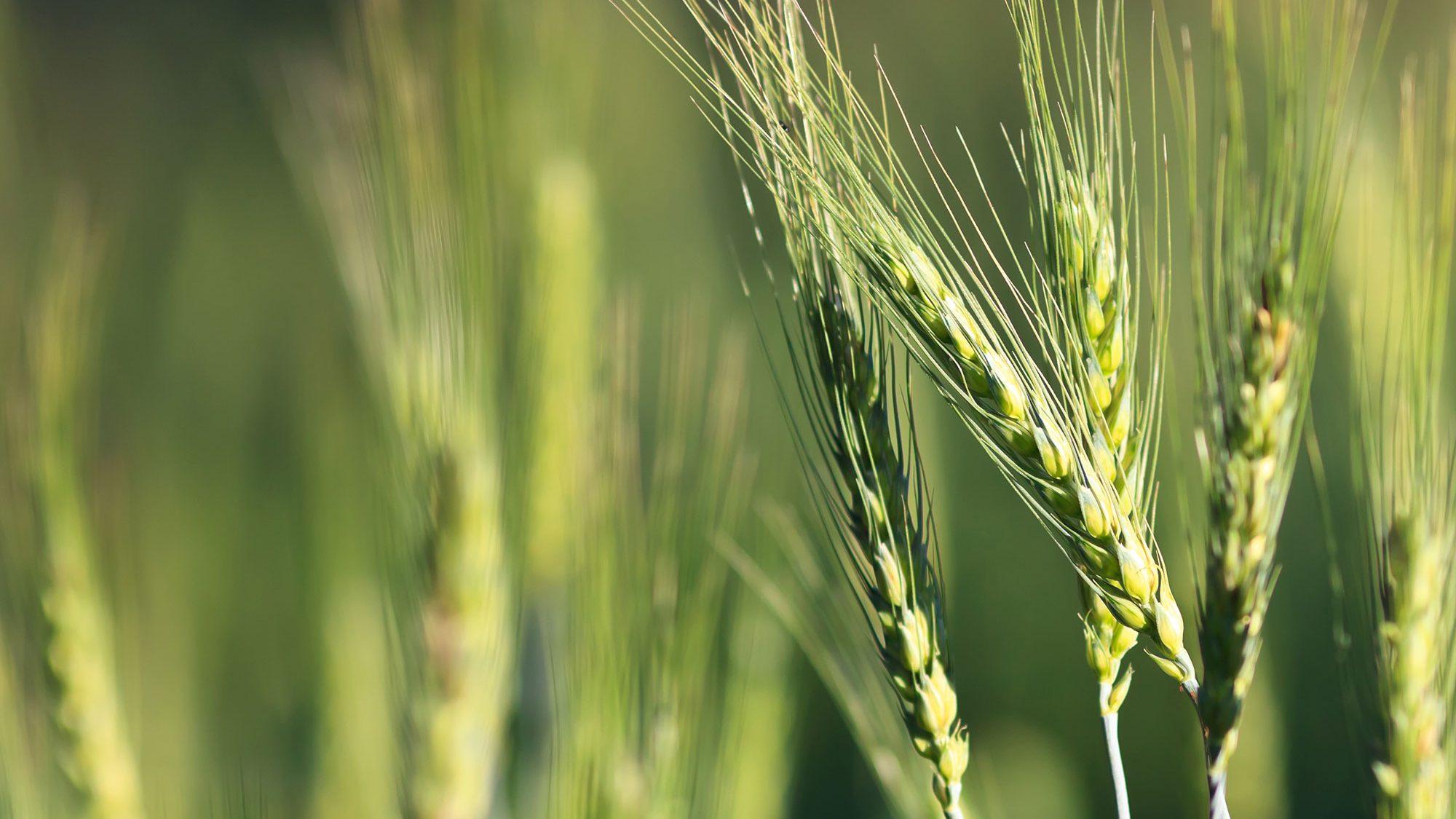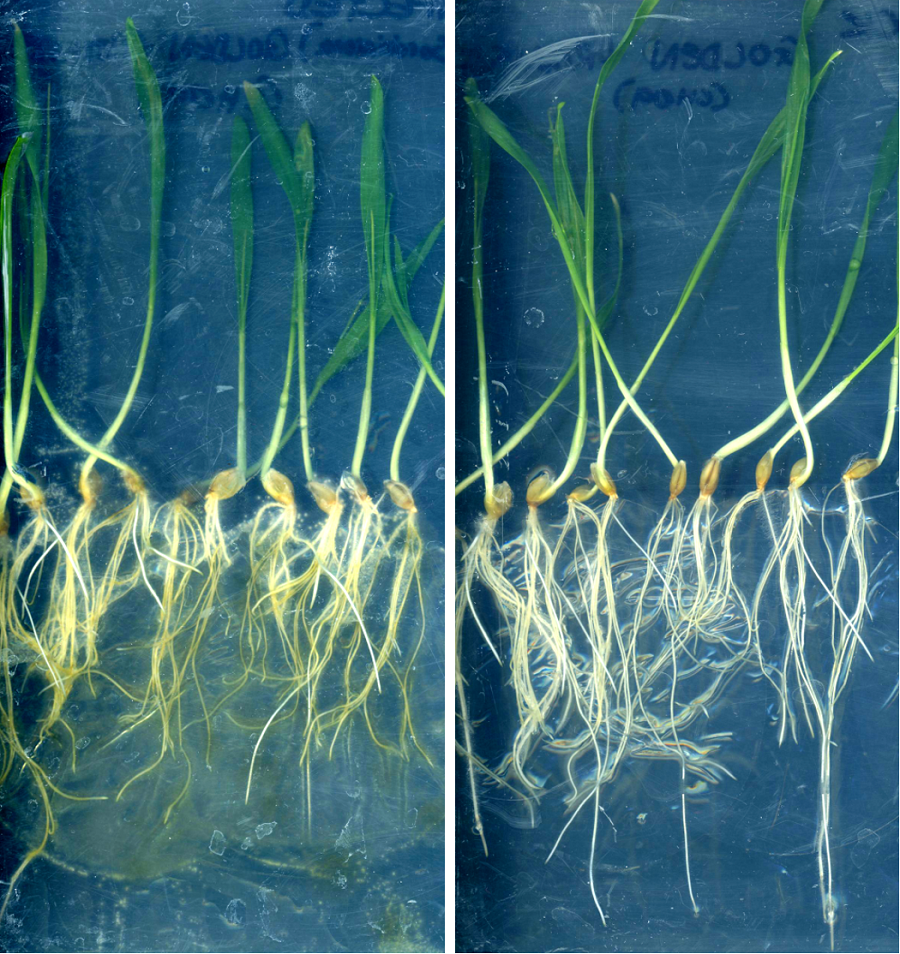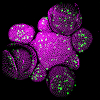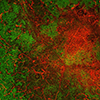
Funding to advance strategy that promises long-lasting disease resistance against multiple root rot pathogens in barley
Sainsbury Laboratory Cambridge University (SLCU) has received funding from the Biotechnology and Biological Sciences Research Council (BBSRC) to advance fundamental research to develop broad root disease resistance in barley.
Barley is the fourth most cultivated cereal globally and is pivotal to the UK economy, yet root diseases routinely cause significant losses in yield and grain quality.
Due to climate change, barley root health is expected to worsen as milder and wetter winters are creating conditions that favour fungal diseases.
BBSRC project lead and SLCU group leader, Dr Sebastian Schornack, said new control strategies were urgently needed: “Multiple different fungal and filamentous pathogens cause barley root disease and specific disease resistance genes often only confer resistance to one pathogen.
“Consequently, barley root rot control measures are largely restricted to crop rotation and chemical seed coating. Unfortunately, the emergence of chemically resistant pathogen isolates has been observed recently and some of the chemicals currently used will soon be limited to greenhouse use in the EU. This increases the urgency for finding alternative disease control measures.”
Dr Sabine Brumm, who is a research scientist in Dr Schornack’s research team, will advance a strategy that promises long-lasting disease resistance against multiple root rot pathogens based on removing a gene in barley that is essential for pathogen entry and establishment.
“Despite the diversity of pathogen species that attack barley roots, their unifying filamentous lifestyle and their common strategy of entering through plant cell walls facilitate the identification of common host susceptibility mechanisms. These mechanisms can be used to engineer durable, quantitative root resistance.”
Similar in the way that bacteria and viruses develop resistance to antibiotics, plant pathogenic fungi and fungus-like pathogens co-evolve over time and defeat specific resistance traits. As a result, crop disease resistance breeding has become an ongoing arms race between plant breeders and pathogens.
Barley seedlings infected with Common rot fungus (left) with clear root rot, and control plants (right). Images: Sabine Brumm and Matthew MacLeod.
Dr Schornack’s alternative strategy hopes to avoid this arms race by developing a more durable disease resistance that slows down pathogens’ entry by fortifying the cell wall as a barrier against invaders giving the plant sufficient time to mount appropriate defences.
“It is often assumed that broad disease susceptibility genes are needed to fulfil other key functions in plants and their removal would negatively impact on the plant, but some of these genes might not be needed when crops are grown in the field,” he said. “We have uncovered a mechanism controlling subtle changes to the architecture of cell walls in legume roots that bolsters their defence against pathogens without negatively affecting plant growth.”
“Dr Schornack said this alternative strategy could protect barley from not just one, but several root pathogens. “Our BBSRC project will investigate whether mutation of single SCAR genes in barley is a feasible way to render roots more resistant to a range of economically relevant root pathogens with similar infection strategies, such as common rot, Rhizoctonia root rot and Pythium and Fusarium rots.”
SCAR proteins are part of a cell protein complex which controls transport processes including the transport of sugars required to build the cell wall.
As part of the project, plants will also be tested under nutrient and drought stress. The bacterial and fungal communities associated with the roots (the microbiome) will be analysed to determine other effects, such as whether barley missing a SCAR gene can still form associations with beneficial soil microbes.
The work will also benefit from expertise from researchers at IBERS, Aberystwyth University, the University of Dundee and the Cereal Disease Laboratory at the University of Minnesota.
BSRC Project Details
Project Title: A strategy for broad root disease resistance in barley
Led by: Dr Sebastian Schornack
Researcher: Dr Sabine Brumm
Funding: £446,245








